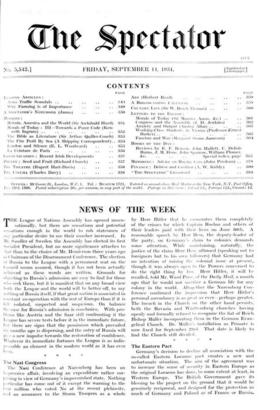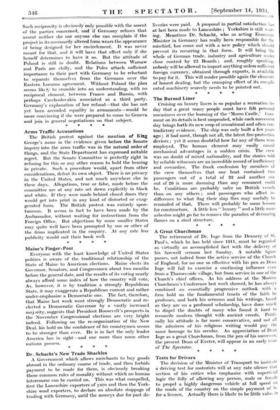The Eastern Pact .
Germany's decision to decline all association with the so-called Eastern' Locarno pact creates a new and unfortunate situation. The aim of the agreement was to increase the sense of security in Eastern Europe as the original Locarno has done, to some extent at least, in Western Europe. The British Government gave its blessing to the project on the ground that it would be genuinely reciprocal, and designed for the protection as much of Germany and Poland as of France or Russia. Such reciprocity is obviously only possible with the assent of the parties concerned, and if Germany refuses that assent neither she nor anyone else can complain if the project in its necessarily altered form wears the appearance of being designed for her encirclement. It was never meant for that, and it will have that effect only if she herself determines to have it so. But the attitude of Poland is still in doubt. Relations between Warsaw and Paris are chilly, and the Poles attach sufficient importance to their pact with Germany to be reluctant to separate themselves from the Germans over the Eastern Locarno agreement. Without Poland the • plan seems likc?" to crumble into an understanding, with no reciprocal element, between France and Russia, with perhaps Czechoslovakia associated as a third party. Germany's explanation of her refusal—that she has not yet been accorded equality in armaments—would be more convincing if she were prepared to come to Geneva and join in general negotiations on that subject. * * * *











































 Previous page
Previous page